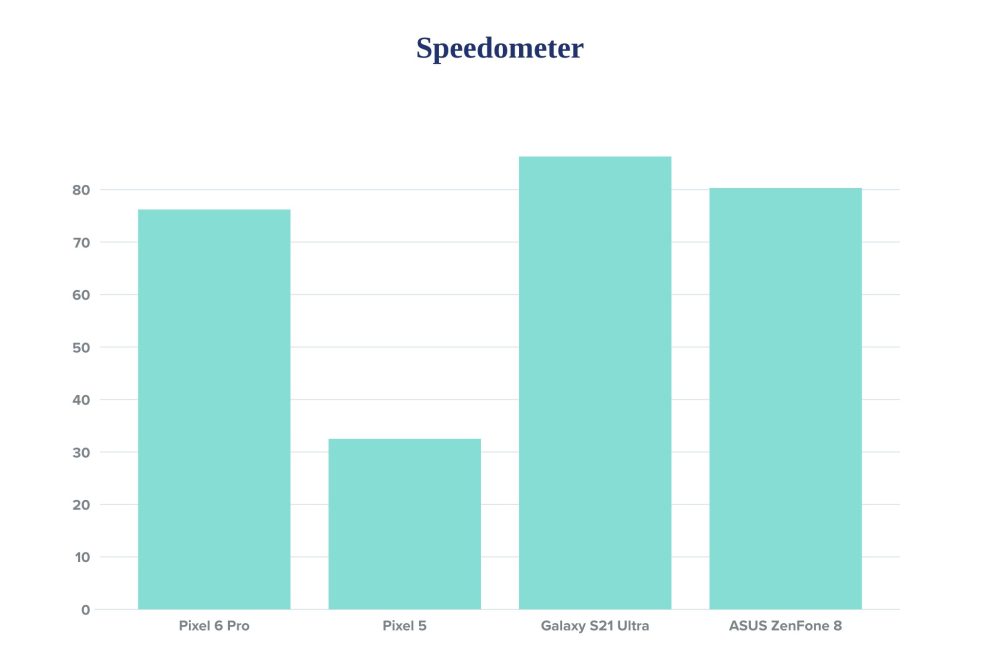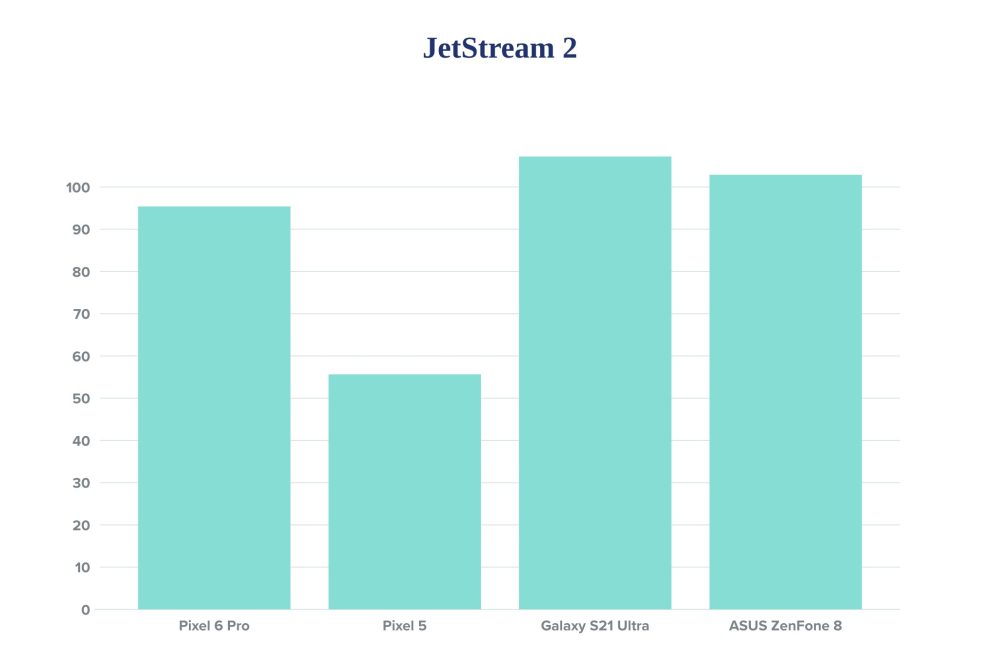One of the biggest question marks about the Pixel 6 series is how its debut “Google Tensor” chip will perform compared to phones powered by Snapdragon processors. Thanks to newly shared benchmarks, we have a better idea of how the Pixel 6 Pro will perform compared to the Pixel 5 and Galaxy S21.
Despite being formally announced, there is still a lot we don’t officially know about the Pixel 6’s Google Tensor chip, including the actual processor cores used in its design. Though these details have finally leaked, it’s left us all the more confused about whether the Pixel 6 series will outperform its competition in the Android space.
Thus far, the only other indicator we’ve had is a lone benchmark test from Geekbench which, for whatever reason, saw the Pixel 6 Pro score significantly lower than the OnePlus 9 powered by the Snapdragon 888.
XDA’s Mishaal Rahman, citing a source who claims to have a Pixel 6 Pro in hand, shared on Twitter the results of some more benchmarking tools run on the upcoming Tensor-powered phone. The tools — Speedometer and JetStream 2, both from Browserbench — use various web, JavaScript, and WebAssembly methods to push a device to its limits and measure performance. While far from a meaningful representation of real-world speeds, these scores help give an idea of how the Pixel 6 series may compare to other Android devices.
For the Speedometer test, which simulates adding and removing items from a simple to-do list app (rewritten using a variety of different frameworks and APIs), we find that the Pixel 6 Pro comes in close behind both the Galaxy S21 Ultra and ASUS ZenFone 8, both Snapdragon 888-powered phones. Meanwhile, in a battle of Pixel vs Pixel, the Pixel 6 Pro and Google Tensor massively outperform the Pixel 5 and its Snapdragon 765 processor.
- Pixel 6 Pro: 76.2
- Pixel 5: 32.5
- Galaxy S21 Ultra: 86.3
- ZenFone 8: 80.3

Next, in the JetStream benchmark, which runs many suites of smaller JavaScript and WebAssembly benchmarks, the Pixel 6 Pro once again comes in not far behind the Galaxy S21 Ultra and ZenFone 8. For whatever reason, the Pixel 5 handles this test a bit better, making for less of a performance gap between last year’s phone and the Pixel 6 Pro.
- Pixel 6 Pro: 95.4
- Pixel 5: 55.6
- Galaxy S21 Ultra: 107.2
- ZenFone 8: 102.9

While it’s certainly disappointing to see the much-anticipated Pixel 6 Pro, powered by the long-rumored Google-made chips, fall behind in performance, it’s important to remember that these tests were run on a pre-release device. There’s still time for Google to include more last-minute optimizations for the new Tensor chip. These particular tests are also not necessarily definitive, as they’re relatively limited by what’s possible in the web browser today, rather than a native benchmarking app.
Beyond that, it’s been clear from the outset that Google has put more emphasis on machine learning performance rather than raw specs, which wouldn’t be accounted for in these sorts of benchmark tests. At the very least, it’s clear the Pixel 6 series should offer a significant upgrade for owners of the Pixel 5.
More on Pixel 6:
- Google hypes the Pixel 6 in Japan with bag of ‘Google Original [Potato] Chips’
- Leaked Pixel 6 Pro details reveal more camera specs, ‘baby mode,’ and 120Hz 1440p display
- Google brings Nexus back from the dead… to tease Pixel 6 moments after iPhone 13 event
Author: Kyle Bradshaw
Source: 9TO5Google



